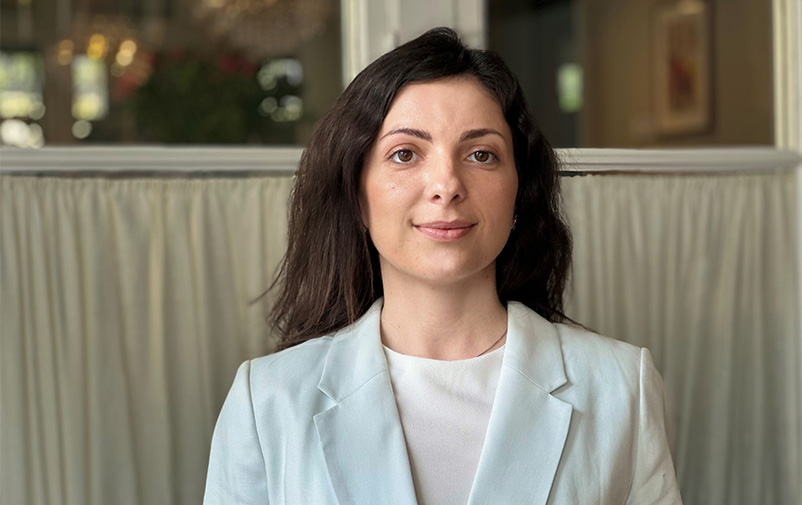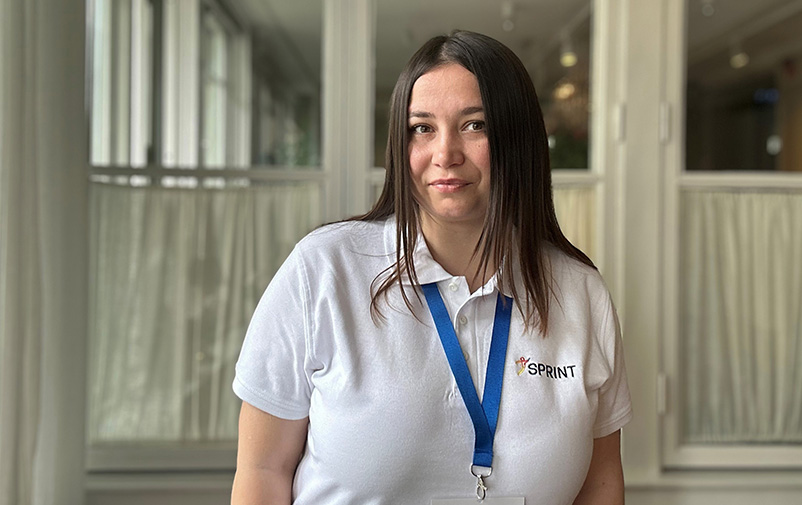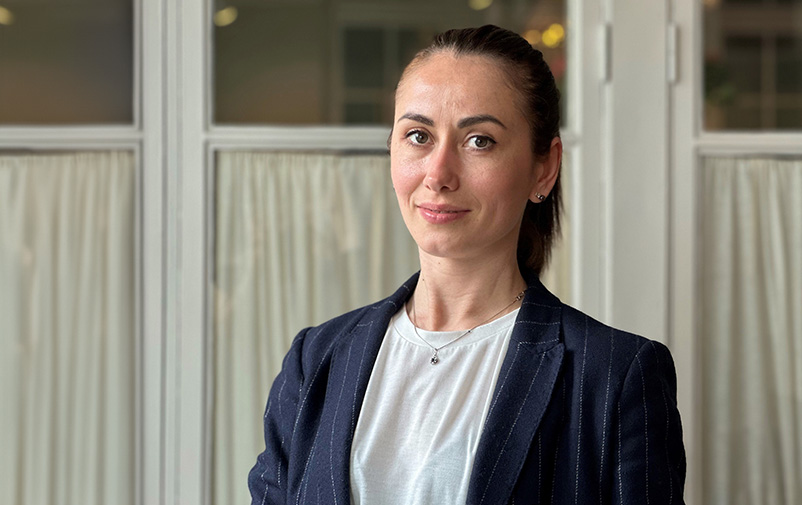
Nathalie Ndimubanzi (left) and Judith Maroy (right) – founders of the Zaida Catalán Club.

– The programme helped me understand what needs to be improved in the Moldovan public system and how I can drive change while inspiring others in my Ministry to become changemakers.
– Before participating, I viewed myself differently because I am very new to my job. I felt that I lacked sufficient experience, but I realized I have the power to effect significant change within my ministry. It's just a matter of mindset, and this training reassured me of my capabilities. So, from now on, I will not position myself as a minor part of the system, but as a proactive contributor.
– One significant challenge is the organizational structure within ministries and authorities. We need to transition from a pyramid structure to a more collaborative, roundtable approach. Each member within a small group can add tremendous value to the process, so we should emphasize the need to listen to everyone's opinion.
– For example, in agriculture, decisions are often made without sufficient discussion with the end farmers, leading to miscommunication. We need to be closer to the farmers, listen to their needs, and base our policies and decisions on their input. This approach is crucial for the successful implementation of policies aimed at achieving prosperity in the agricultural and food industry.
– It took me a while to get there, but after becoming a parent, I asked myself: what can I change in my country to offer a more sustainable environment for our children? I wanted to contribute to building a stable society and a future in which they can see themselves as part of the system and not be pushed to migrate.
– I also felt called to work in the agricultural sector. Moldova is, after all, an agrarian country, and people will always need to eat. Ensuring sustainable agricultural practices and supporting local farmers became a passion for me. By working in this sector, I aim to create a more resilient and prosperous future for all citizens.

– The most valuable aspect of the programme for me was gaining competence and becoming more professional. It empowered me by improving my knowledge and skills. More specifically, I feel that I have significantly improved my self-confidence. The training provided a foundation for self-evaluation and emphasized principles like transparency and accountability.
– In my work on social inclusion and health, we are addressing burnout syndrome, which is common in central public authorities in Moldova. During the training, we discussed our project on this topic and how to improve the process of individual performance evaluations. This was a new and challenging area for me, but one I will be able to draw on in my continued efforts. It will for example be helpful in developing recommendations to mitigate burnout, and these could be useful across various ministries.
– Beyond burnout, we are considering issues like bullying and the social inclusion of people with disabilities. The learnings from SPRINT will support us in revising policies to align with the World Health Organization’s (WHO) recommendations and improve access to services.
– As a doctor, I realized that helping people isn't just about providing treatment in a hospital but also about making resilient and sustainable policies. This led me to become a civil servant, and now I can serve patients and citizens in a more comprehensive way.

– I took away a lot of good things to implement for internal control in my institution. For example, I learned about new ways to recruit and evaluate employees, setting clear expectations and assessing performance progress is something we can adopt at our Ministry to evaluate and improve our internal climate.
– In my experience, study visits often repeat the same activities, but this training included many practical and different exercises that were beneficial to understanding how we can improve things.
– Poor communication between public servants and department heads is a key reason employees leave, as they feel unimportant and disconnected from their supervisors. Another challenge is that young public servants do not receive enough support from experienced colleagues. They often feel overworked and unappreciated, which affects their motivation and well-being. Additionally, new public servants are not introduced warmly; they need to be welcomed face-to-face to feel part of the team.
– I would like to address these challenges within my institution and help improve direct communication. One of the things I plan to do is incorporate recommendations into my audit mission. For example, during the training, we learned about implementing anonymous evaluations where executives assess heads of departments. This approach can help reveal communication issues and motivate improvements.
– I believe my drive to make a difference is like my karma. From the beginning, when I joined the Ministry of Education, I felt a strong connection and determination to improve things. Initially, some colleagues were sceptical about my efforts, often saying, 'Oh, you're going to bring another audit?’ But over time, they could see real improvements due to my contributions and began to understand the importance of audit and the value it brings. Over the past ten years, I have accumulated experience working within various public authorities, including my recent position at the Ministry of Health, and I see the impact of my work.
MORE FROM HOME
Two former recipients of FBA’s 1325 Scholarship, Nathalie Ndimubanzi and Judith Maroy, have founded the Zaida Catalán Club – a youth-led organization focused on women, peace, and security in the Democratic Republic of Congo (DRC). How did the scholarship pave the way from theory to action?
2024-10-18 14:40FBA has both increased and adapted its work in Ukraine in the wake of Russia's invasion.
FBA in UkraineKlara Grenhagen works as a specialist at FBA's Africa unit with a focus on dialogue, reconciliation and peace processes.
More about our expertsFBA is part of Sweden’s development aid within the area of peace and security
Read more about the countries where we work